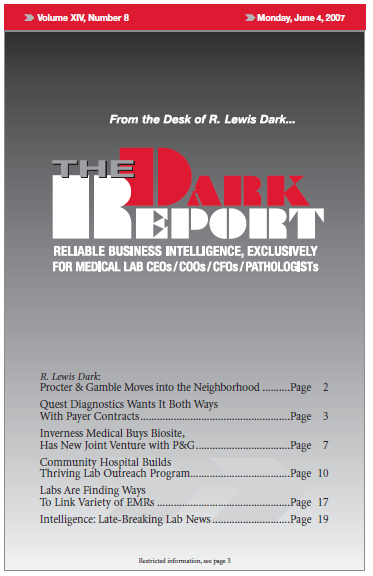CEO SUMMARY: Once again, public laboratory companies are pursuing short-term strategies that promise competitive advantage to themselves. But these strategies also carry long term risks that could burden the entire laboratory industry. Contradictions in the current cycle of competition for exclusive managed care contracts are already visible. Ongoing consolidation of payers is another wild card …
Quest Wants It Both Ways with Payer Contracts Read More »
To access this post, you must purchase The Dark Report.


